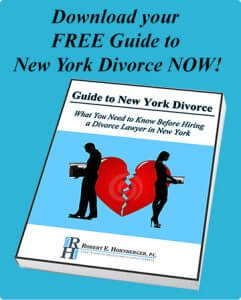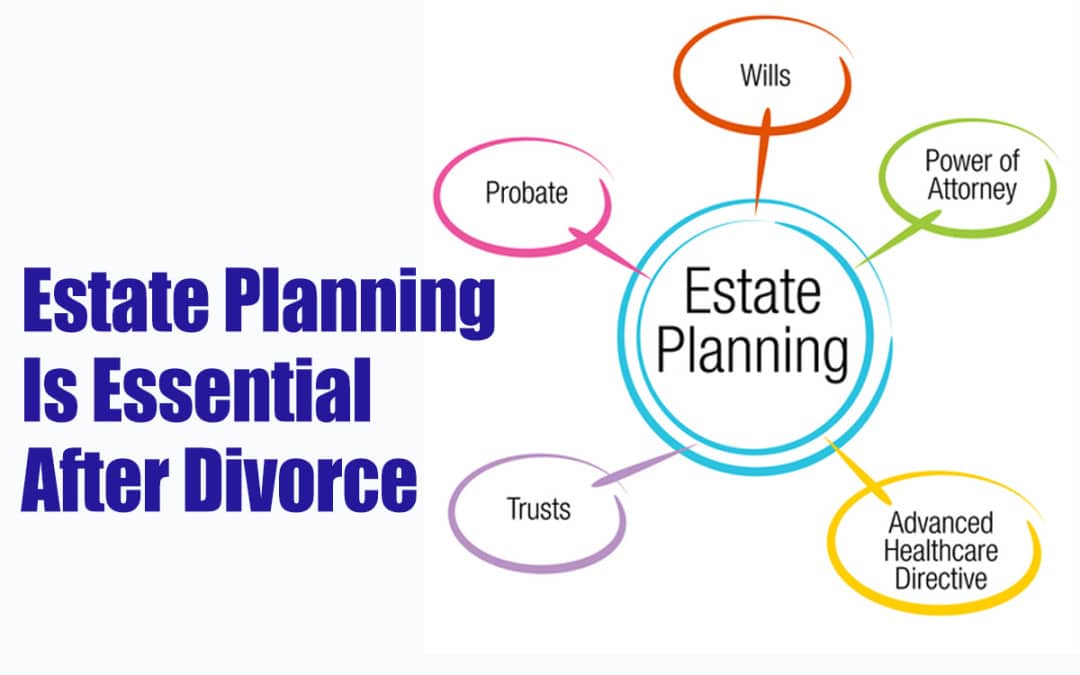Estate Planning Is Critical to Ensure Your Assets Don’t Go to Your Ex
As Long Island divorce attorneys, we are retained to help couples end their marriages, divide their marital assets and resolve issues of child support and visitation.
While no one wants to think about their own death, especially during as traumatic event as a divorce, it is as inevitable as taxes. During a marriage, we make many decisions regarding what happens after we die. From insurance policies and retirement plans, to health care proxies, living wills and the like, you have likely designated your spouse to be the beneficiaries or designees. Now that you’re divorced, you’ll probably want to change those important documents. If you have a will, it’s time to dig that out and discuss with an estate planning attorney what you want to change. If you don’t, it’s time to make one to ensure your wishes are followed after you pass and are not left to the discretion of a judge, or worse, your ex.
What is an Estate Plan and Why Do You Need One?
An estate plan is not something you think about every day. In fact, I would guess the last time it crossed your mind was either when you got married or shortly after the birth of a child or grandchild. The one thing those events have in common is that they are life changing – as is a divorce. Most likely, your estate plan, if you have one, was drafted when you were happily married, and therefore the bequests and beneficiary designations made therein are not likely the same as your current desires.
We know that your own demise is a topic of conversation most people tend to avoid. However, whether you realize it or not, your divorce has created significant changes in not only your life, but your eventual death, and there is no better time to deal with these changes than today.
It’s Time to Change Your Last Will and Testament
Most, if not all, of the testamentary dispositions and designations to your now former spouse will be automatically revoked upon obtaining your Judgment of Divorce. While you may think this is great, the reality of the situation is that this could cause many bequests or dispositions to lapse, and otherwise fall to the residuary of your estate or pass pursuant to New York intestacy laws. Without changing your Last Will and Testament, what this means is that you will not be able to declare who receives your property after your death.
Furthermore, as a Long Island divorce lawyer and family law attorney, I cannot stress the importance of updating your will and estate plan if you have children with your former spouse. While the most common scenario upon the death of one parent before the other is that the surviving parent becomes the sole guardian of any children in common, if you are divorced there may be reasons why this is not in the best interests of your children. If your former spouse was declared an unfit parent, had his or her parental rights terminated, or even predeceased you, you need to be sure to appoint a guardian for your children. Of all the worries in life, do not let who will take care of your children after you are gone be one of them.
Don’t Forget to Update Your Health Care Proxies and Living Wills
While you may be healthy now, a health care proxy and a living will are both necessary medical documents that allow you to appoint someone to make health care decisions for you if you are unable to make them for yourself. It is natural that during the course of your marriage you appointed your spouse to make these decisions for you. However, now that you are divorced it is highly unlikely that you want your former spouse to make life and death decisions on your behalf. If you do not update these documents, in the event of an emergency or if you are otherwise incapacitated, your life will be in the hands of your former spouse.
Beneficiary Designations for Bank Accounts, Life Insurance Policies, Retirement Accounts and Investments
While designations to your former spouse in your will document will be automatically revoked upon your divorce, the same is not always true for other assets such as retirement accounts, life insurance, IRAs, annuities, health savings accounts, investment or bank accounts. Once again, I am sure the last thing you want is your bank account passing to your former spouse and ultimately his or her family.
Even in those jurisdictions where the law allows for such designations to expire with divorce, are your minor children named as successor beneficiaries? If so, a court will appoint a guardian of the property upon your death to manage those assets until your children reach age 18. Once the minor reaches the age of 18, s/he will receive the entire inheritance. Is this what you want to happen? Are you confident that at the young age of 18, your children will use that money wisely or blow it on a shiny new sports car, or worse?
In certain instances it is preferable for that inheritance to be held in a trust with supervised distributions so that your children will receive their inheritance as directed and not squander it all in their teenage years. If you do not designate a guardian of property for your minor children, there is a good chance a court will appoint your former spouse. If this is not the result you want, you must take action to prevent it now.
Tax Considerations for a Single Person
In high net worth situations, a divorce can also create estate tax considerations that did not exist prior to the divorce. The Federal Estate Tax Exemption increased to $5.43 million per person in 2015. What this means is that under Federal law, a married couple can shield up to $10.86 million worth of assets from Federal estate taxes upon the first spouse’s death. The New York State Estate Tax increased to $3.125 million ($6.25 million for a married couple), effective April 1, 2015, and will continue to increase until it reaches the Federal estate tax level in 2019. As a result, a divorce may bring about tax implications that would not otherwise be present were you to remain married.
Other Documents to Consider in Your Estate Plan
Other documents that may also need to be reviewed include Revocable and/or Irrevocable Trusts and title(s) to property. As a Long Island divorce lawyer and family law attorney, I have seen that after divorce, many people simply fail to change title to the assets they were awarded (such as real estate and vehicles) leaving the property in joint title with the former spouses. These jointly held assets may pass upon death to the surviving ex-spouse, another result you likely wish to avoid.
Contact Us for All Your Estate Planning Needs
You most likely feel you have already made a major investment in your divorce, and are unwilling to invest more in estate planning now. However, our Estate Planning services are affordable and our low fees are small to protect your assets and ensure they are distributed in accordance with your wishes upon your death. We are pleased to offer you no-risk free consultation during which these issues may be discussed in greater detail. Contact the Long Island divorce lawyers, family law attorneys and estate planning attorneys at Hornberger Verbitsky, P.C. 631-923-1910 to schedule your complimentary consultation today.
DISCLOSURE REQUIRED BY CIRCULAR 230. This Disclosure may be required by Circular 230 issued by the Department of Treasury and the Internal Revenue Service. If this article, including any attachments, contains any federal tax advice, such advice is not intended or written by the practitioner to be used, and it may not be used by any taxpayer, for the purpose of avoiding penalties that may be imposed on the taxpayer. Furthermore, any federal tax advice herein (including any attachment hereto) may not be used or referred to in promoting, marketing or recommending a transaction or arrangement to another party. Further information concerning this disclosure, and the reasons for such disclosure, may be obtained upon request from the author of this article.
 Download our Free New York Divorce Guide
Download our Free New York Divorce Guide
Our 41-page “Guide to New York Divorce: What You Need to Know Before Hiring a Divorce Lawyer in New York” written by an experienced family law lawyer Long Island’s Robert E. Hornberger, Esq., provides you with real information on the divorce process and the laws it rests upon in the state of New York. This book will help give you a solid foundation upon which you can begin the process of making your family’s, life better. Download your Free Guide to New York Divorce here.





